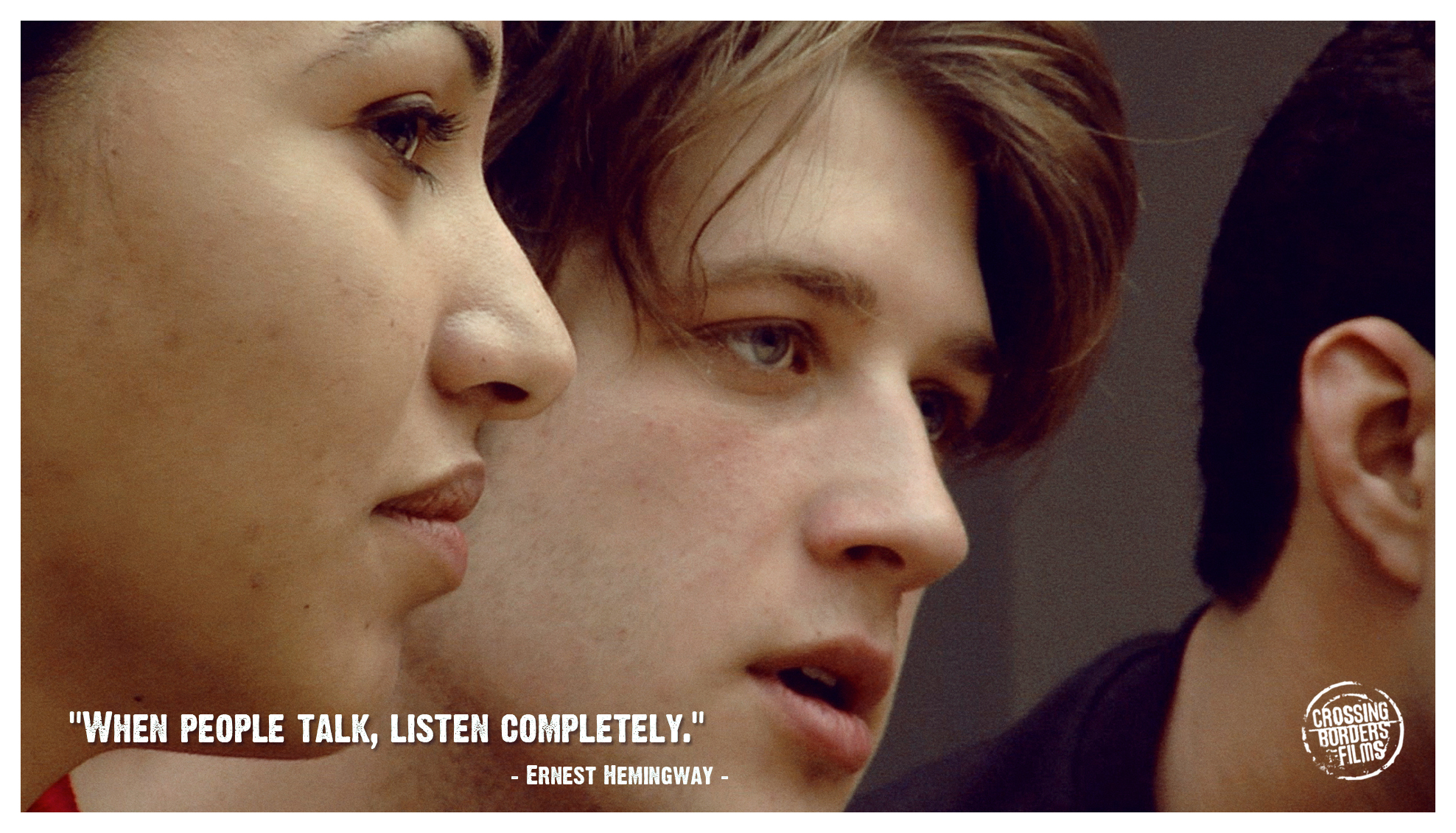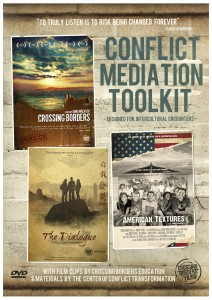
This toolkit is created around our timely, character driven and emotional feature film Crossing Borders, which follows four Moroccan and four American students as they travel together through Morocco to explore issues of perception and stereotyping through dialogue.
Recent terror attacks have undermined our sense of safety. Media representations of the issues and political discourse further polarise our societies and leave us insecure about constructive ways to respond. At Crossing Borders we feel that what we as ordinary citizens can do is to develop the skills and courage to address painful issues and take the risk to engage openly. The story of Crossing Borders is envisioned as a blueprint for processing conflicts, developing empathy and exploring the Other’s reality. This page provides you with tools to lead small group conversations that support growing a culture of dialogue at your home, school, work, church or community.
The authentic and transparent voices in the film Crossing Borders models what students can practice in their own intercultural experiences and gives them the courage to develop transformative relationships.Dr. Naomi Ludeman Smith, Intercultural Studies, Bethel University
To learn more about Crossing Borders, view the creative concept behind the film and the director’s statement. Also, check out the video package interracial dialogue which is created to support initiating urgently needed conversations at this time.
Content
The group interactions below are suggested formats that are simple and practical for people who on one hand lead busy lives and who on the other hand want to support and participate in open and constructive dialogue. The activities are two e mail interactions (20-30min each) and one screening-discussion (2hrs), but feel free to adapt them to a style that works best for your group .
- Learning areas: Intercultural Awareness, Empathy, Critical Thinking, Communication Skills
- Group size: To support deep and honest dialogue it might serve best to invite initially a small group of 2-20 diverse individuals.
Step 1: Setting the tone (20min)
Support your group via e mail one week prior to coming together for the screening event. Following resources are aimed to support you in this step.
- Crossing Borders Trailer (2 min) view
- Review the page Culture of Dialogue
- Why Initiate Dialogues? (2 min) view
Step 2: Engaging minds and hearts (2hrs)
Invite your group to an informal setting for watching American Textures and create space for open dialogue afterwards. If you are not yet experienced in facilitating a group discussion find someone in your context who can support you. You could support in the first dialogue and then facilitate other groups in the future.
Facilitator’s Notes coming soon
View Crossing Borders
Suggestions: Create a space in which individuals feel welcome to share not only thoughts but also feelings. Encourage people to let go of any pressure to create resolutions already. For now simply start by focusing on sharing openly and listening actively. (Remember: feeling fully listened to can become a healing impulse in itself and jumping to solutions can strongly undermine deep listening.)
Step 3: Integrating the insights (30min)
Engage your group to reflect via e mail after coming together. Following resources are created to support you in the process of deepening understanding and insights.
Group Handout coming soon
- Phases of a Dialogue (9 min) view
- Review the page Initiating Interracial Dialogue
- Encourage your group to invite their friends to a next small group dialogue with The Dialogue or American Textures
Crossing Borders challenges us to think before acting and to get to know people before forming judgments – regardless of culture, race or religion.Cory Smith, Assistant Director of Study Abroad, University of Cincinnati
Next Step: Initiating connections (5 min+)
Send a short message to your friends about this experience and share it on social media (5min). If you can make the time: Take the courage and facilitate more small group dialogues. Take the initiative and organize Screening Discussion Events with Crossing Borders in your community (e.g. homes, cafe’s, work places, community centers, libraries, schools, churches, etc.).
Go Deeper: Conflict Mediation Toolkit
 Subscribe to our online tools and use the Conflict Mediation Toolkit to discover the power of group processes in different intercultural settings. Bring powerful learning into your community or classroom and enhance key skills such as critical thinking, leadership skills, cross-cultural skills, civic engagement, social skills, and others.
Subscribe to our online tools and use the Conflict Mediation Toolkit to discover the power of group processes in different intercultural settings. Bring powerful learning into your community or classroom and enhance key skills such as critical thinking, leadership skills, cross-cultural skills, civic engagement, social skills, and others.

